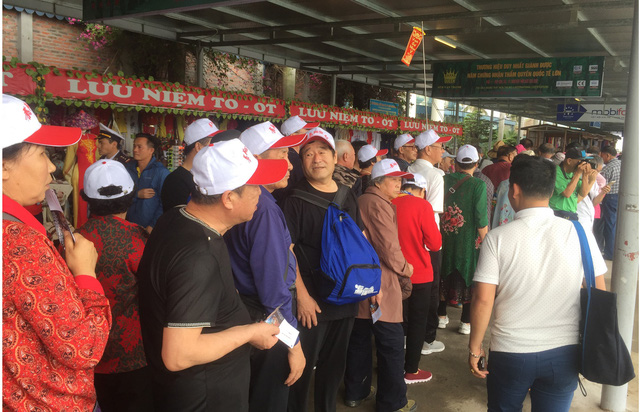The government of a coastal province in northeastern Vietnam announced on Thursday it would implement stringent measures aimed at suppressing the rise of ‘zero-dollar tours’ – tours offered to Chinese visitors at extraordinarily low prices.
The People’s Committee of Quang Ninh Province has officially ordered the department of tourism and several administrative bodies at more local levels to cooperate in their inspections of tourism companies, shops, and restaurants in the area.
The administration also stated that strict punishments will be imposed on any company offering zero-dollar tour schemes.
The move followed a punitive decision on March 20 by the committee’s inferior body, the Ha Long City People’s Committee, to shut down a local tourist company operating the ultra-cheap tours.
Zero-dollar tours, tours which charge only for airplane fares or are touted at extremely low prices, typically deliver adverse impacts on the domestic tourist climate.
The scheme is designed so that Vietnamese businesses pay Chinese accomplices a set price, anywhere from US$5 to $31, for each visitor participating in the tour.
To offset losses, the businesses take visitors to shops and restaurants built exclusively for Chinese tourists, and evade paying taxes.
These specific shops and restaurants overcharge customers, sullying Vietnam’s image in the process.
The government receives little revenue from this shady form of tourism.
Most companies operating zero-dollar tours are headquartered outside Quang Ninh, creating serious obstacles for authorities attempting to mitigate the damage caused by irresponsible tour operators.
During the first three months of 2018, nearly 310,000 inbound Chinese visitors flooded through Quang Ninh’s Mong Cai Border Checkpoint, mostly to visit Ha Long Bay, a UNESCO World Heritage Site.
The Quang Ninh administration’s move comes in the wake of similar initiatives taken by other governments throughout Southeast Asia, including a move by Thailand’s government to clamp down on zero-dollar tours after recognizing the financial downfalls and illicit practices they create for the local tourism industry.
Like us on Facebook or follow us on Twitter to get the latest news about Vietnam!


















































